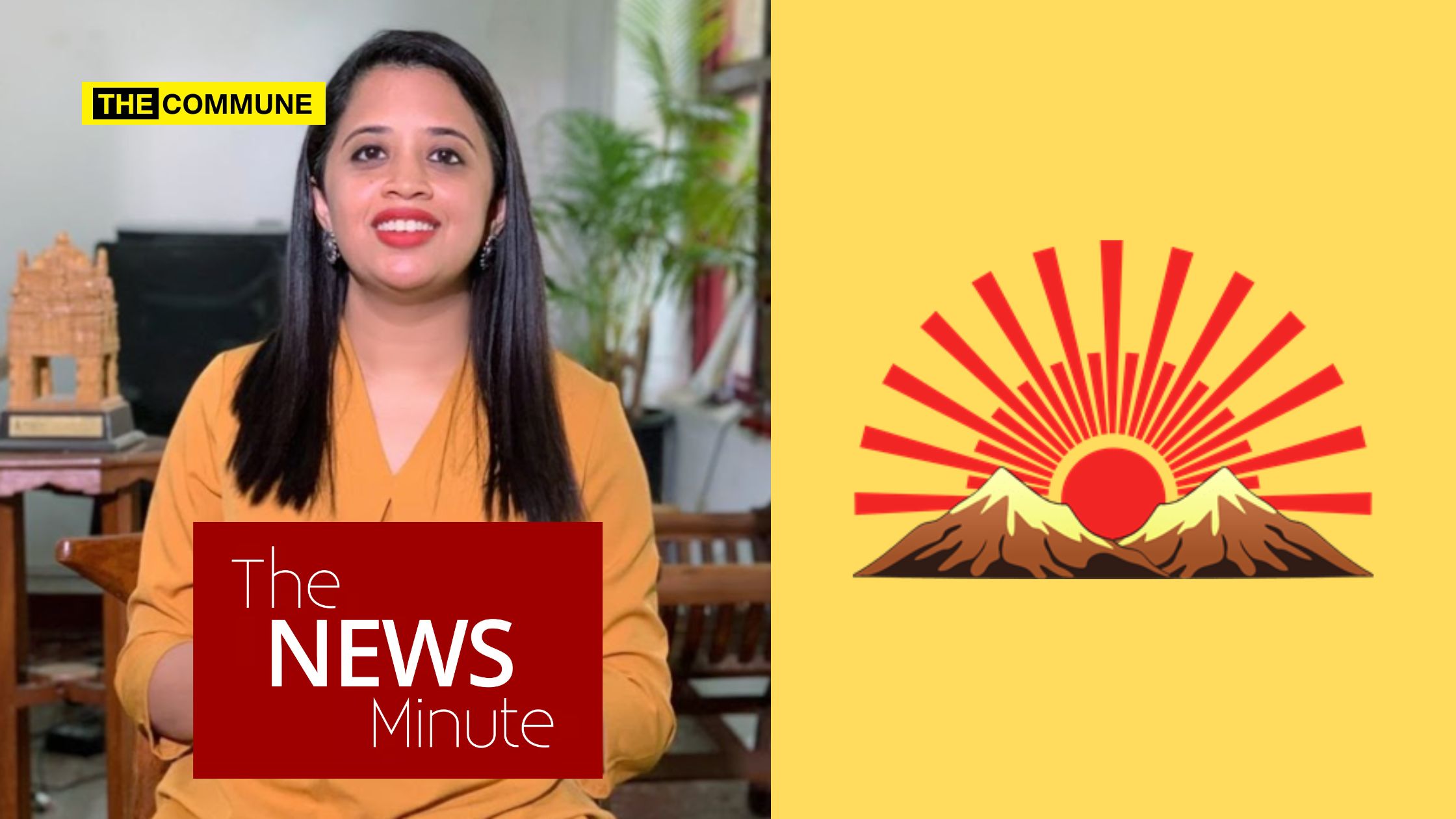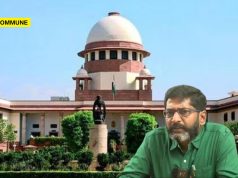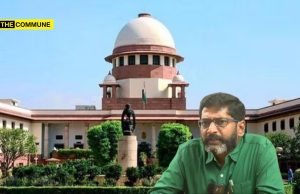
The Supreme Court’s recent verdict striking down Tamil Nadu Governor R.N. Ravi’s reservation of 10 state bills for Presidential assent has triggered a media storm — but not all of it grounded in impartiality. Among the loudest celebrants was Dhanya Rajendran, editor of The News Minute (TNM), who wasted no time calling it a “huge” moment and a “big victory” for the DMK.
Her post on X read, “This is huge. Big victory for the DMK and sets a precedent. So many states have complaints that Governors are sitting on bills.”
This is huge. Big victory for the DMK and sets a precedent. So many states have complaints that Governors are sitting on bills. https://t.co/vzjgRmgdRx
— Dhanya Rajendran (@dhanyarajendran) April 8, 2025
A journalist publicly cheerleading a political party’s legal victory — without nuance or journalistic caution — is not analysis. It’s partisan posturing. And this is far from an isolated instance. TNM, under Dhanya’s editorial leadership, has made a habit of amplifying outrage against the BJP while remaining conspicuously silent on the censorship and strong-arm tactics of the DMK — a pattern best described as “selective journalism,” or more bluntly, simping for the Dravidian ruling class.
It Is All ‘Fascist’ — Unless It’s The DMK
Take the recent Empuraan controversy. The Malayalam political thriller faced over 17 cuts following objections over its portrayal of the 2002 Gujarat riots — prompting TNM to unleash a barrage of content on censorship, “Hindutva bullying,” and the death of artistic freedom. Its tone was militant: artistic liberty was under siege, and the villain was the “right wing.”
But when the same film was quietly edited to remove alleged references to the Mullaperiyar dam — after public pressure from the DMK government, including threats from ministers and an Assembly debate — TNM had nothing to say.
Not a word. Not a video. Not a breath of the righteous outrage that animated its earlier coverage.
TNM’s Bias And Selective Outrage – Silence On DMK’s Crackdown On Dissent
The News Minute (TNM), under the leadership of Editor-in-Chief Dhanya Rajendran, consistently exhibits glaring double standards and ideological bias, particularly in favor of the DMK and other left-leaning forces. While Dhanya is vocal against the central government—accusing it of censorship, authoritarianism, and media control—she remains conspicuously silent on similar or worse crackdowns by the DMK-led Tamil Nadu government. Despite a long list of arrests targeting critics, YouTubers, BJP functionaries, and common netizens under the DMK regime, Dhanya has never condemned the state’s blatant misuse of power. In contrast, she denounced the Centre’s PIB fact-checking mechanism as unconstitutional and dangerous for press freedom, ignoring the fact that DMK had already created a similar, more expansive state surveillance mechanism. These patterns raise serious questions about TNM’s neutrality and reveal it as a partisan outlet masquerading as independent media, with Dhanya Rajendran acting more like a DMK sympathizer than an objective journalist.
The Kunal Kamra Issue
While Dhanya publicly praised comedian Kunal Kamra for challenging the central government’s fact-check unit in court—framing it as a defence of media freedom, her silence on similar or worse actions by the DMK-led Tamil Nadu government, particularly its Social Media Monitoring Centre set up in 2022, was telling. This unit, operating under the police, allegedly suppresses dissent and targets critics of the state government. TNM and Dhanya, despite their vocal opposition to the central government’s policies, failed to condemn this initiative. In fact, Dhanya even platformed the mission director of the DMK’s Fact-Check Unit, effectively legitimizing it.
Thanking DMK Ministers For Supporting Them
As allegations against The News Minute resurfaced in 2023, accusing its journalists of receiving bribes from mining baron Shekhar Reddy based on a resurfaced diary entry, Dhanya Rajendran strongly rejected the claims. She recalled the 2018 Income Tax raids on TNM and a prolonged investigation, which concluded in 2021 with no findings of wrongdoing. The photo of the alleged diary entry listed Dhanya and TNM journalists like Shabbir Ahmed and Anna Isaac as supposed recipients of bribes — claims TNM says were fake and debunked earlier.
Dhanya reshared a 2022 post addressing the same diary entry and condemned those reviving it. Meanwhile, journalist Shabbir Ahmed pointed to a 2016 call recording proving the entry’s circulation was based on misinformation. DMK Minister and IT Wing Secretary TRB Rajaa publicly condemned the misinformation, prompting Dhanya to thank him for his support.
Dhanya’s selective outrage – her silence on violent threats from prominent DMK figures was there for everyone to see.
ASER 2024: Whitewashing Tamil Nadu’s Learning Crisis
Dhanya Rajendran and TNM misrepresented the findings of the ASER 2024 report on Tamil Nadu’s education system. TNM spun alarming data into a false narrative of “progress,” using the severely disrupted 2022 numbers as a benchmark instead of pre-pandemic figures like those from 2018. TNM downplayed the steep decline in foundational literacy and numeracy in the state, particularly in reading and arithmetic skills among government and private school students. Their selective reporting was a deliberate attempt to shield the DMK government and its “Dravidian Model” from scrutiny. TNM highlighted digital literacy gains as a distraction from core academic failures. TNM, being a mouthpiece for the ruling establishment, ignored long-term negative trends and failing to hold the government accountable.
The TNM Rulebook: Hindu Sentiments Don’t Matter
TNM’s selective outrage doesn’t stop at censorship. Its editorial stance consistently portrays any Hindu outrage as dangerous majoritarianism, while ignoring or justifying equally aggressive reactions from Dravidian or minority leaders.
Their coverage of The Kerala Story was scathing, calling it propaganda. But Empuraan, which fictionalized the 2002 riots with real names altered just enough to avoid lawsuits? That, according to TNM, was art. Fiction. Imagination. How convenient.
One of their senior journalists, Pooja Prasanna, even tried to make a distinction between the two films — saying The Kerala Story was “state-sponsored fiction” while Empuraan was “just storytelling.” That’s not journalism. That’s spin.
From TNM – The News Minute To TN Murasoli
In its desperate attempt to project itself as a progressive, left-liberal platform, TNM has turned into something else entirely — a digital mouthpiece for the DMK-Left ecosystem. Its glaring double standards reveal a simple truth: free speech only matters to them when their ideological opponents are doing the censoring.
If the BJP criticizes a film, it’s authoritarianism. If a BJP minister sneezes, it can become hegemony!
If the DMK suppresses speech – Crickets.
If Dhanya Rajendran truly cared about freedom of expression, she wouldn’t just tweet triumphantly when the DMK wins a legal battle. She would have condemned the party’s strong-arming of filmmakers and its creeping censorship culture.
But that would mean speaking truth to power. And TNM only does that when the power isn’t wearing a black shirt and speaking Tamil.
Subscribe to our channels on Telegram, WhatsApp, and Instagram and get the best stories of the day delivered to you personally.




